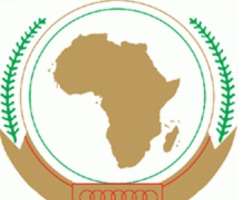MEETING OF THE MINISTERIAL WORKING GROUP ONTHE TOURISM SECTOR DEVELOPMENT STRATEGY FOR AFRICA: AU AGENDA 2063

ADDIS ABABA, Ethiopia, March 10, 2014/African Press Organization (APO)/ -- INVITATION TO MEDIA REPRESENTATIVES
WHEN: 13 - 14 March 2014
The Ministerial Group meeting will be organised in two sessions as follows:
- 13 March 2014: Expert meeting to prepare the Ministerial Session Working papers
- 14 March 2014: Ministerial Meeting for adoption of the report on the Ministerial Working Group on tourism sector development strategy for Africa: AU Agenda 2063.
WHERE: Republic of Seychelles
WHO: Organised by the Department of Infrastructure and Energy of the African Union, in collaboration with the Government of Seychelles
WHY: Tourism as a service sector has clearly emerged as potential driver of socio-economic development and growth in Africa, a continent that is richly endowed with natural resources. Hence globally, the tourism industry faces a range of inherent threats and opportunities. In the context of the 2004 AU Tourism Action Plan, the African Union is expected to develop a tourism policy and strategic framework for the accelerated development of tourism in Africa.
Objectives: In view of the on-going elaboration of the AU Agenda 2063, the ministerial conference on tourism will be a platform to put in place a continental policy and strategy that provides guidance to the short, medium and long-term aspirations of Africa in the tourism sector.
The long-term objective of this policy and strategy is to enable Africa to develop its tourism industry to an appropriate level and maximise its benefit to the socio-economic development of the people of this continent.
Key Issues: The brainstorming session of the Ministerial Working Group will focus on various issues including:
Management (census and classification) of African heritage tourism;
Development of sites, African cultures and special attributes;
African tourism marketing based on complementarity;
Investment promotion including the private sector;
Standards and norms including a tourism code of conduct and ethics for Africa;
Human resource capacities for sector management;
Capacity building for people working in the tourism sector;
Tourism research and development;
Professionalization of Africa tourism operators;
Private and public investment in tourism infrastructure and products;
Management of shared (cross-border) tourism resources (game reserves, waterfalls, etc.);
Intra-Africa tourism for continental integration and cooperation;
African tourism marketing strategy (campaign - e.g. promoting Africa as a brand for more impact and synergy, etc.);
Connectivity facilitating visit of 2 or 3 countries in a package;
Tourism visa facilities;
Infrastructure and investment (e.g. promoting African cross-border investment in hotels, airport, roads, ports, etc.);
Tourism policy and regulatory framework.
Expected Results: This will include the followings:
Strategic orientations for the harmonization oftourism policy, regulatory framework, standards and norms including a code of conduct and ethics for Africa;
Strong institutional and human resource capacities for sector management as well as for research and development;
Enhanced share of Africa's international tourism business which is now controlled by operators in other continents;
Increased private and public investment in tourism infrastructure and products;
Joint management of shared (cross-border) tourism resources (game reserves, waterfalls, etc.); and increased intra-Africa tourism to, inter alia, strengthen continental integration and cooperation;
Boosting marketing of Africa's tourism:
(i) African tourism marketing strategy (campaign - e.g. promoting Africa as a brand for more impact and synergy, etc.);
(ii) Improved connectivity to facilitate visits to 2 or 3 countries in a package;
(iii) Removing of tourism visa constraints;
(iv) Infrastructure and investment (e.g. promoting African cross-border investment in hotels, airport, roads, ports, etc.);
(v) Capacity building for people working in the tourism sector.
Participants: The Ministerial Working Group will be composed of:
- Ministers responsible for Tourism of selected Member States of the AU;
- Representatives of the private sector of the tourism industry will be invited as observers to provide input; and
- Some Officials from the African Union Commission (AUC).
